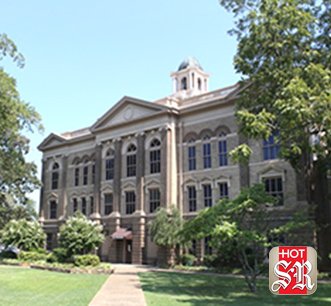An ordinance advanced Monday night by the Garland County Public Health, Welfare and Safety Committee moved the county closer to striking out on its own for animal services.
The committee gave a do-pass recommendation to District 4 Justice of the Peace Mary Bournival's proposal to build a facility jointly operated by the county and the Garland County Humane Society on the 41-acre property of the county detention center. The proposal includes using detention center inmates to help run the facility, which Bournival said could cost as much $1 million to build.
She said the Humane Society would contribute to the cost, most of which would be borne by the county's Ouachita Memorial Hospital Fund. It had an $8.1 million cash balance as of the end of August, according to the county's office of financial management. In lieu of tapping the OMH fund, Bournival said levying 0.2 mill could raise $364,000 a year for construction costs.
The county has contracted with the city for animal services since 1999, but Bournival said the city has asked the county to pay more. The county appropriated $196,000 from its general fund this year to pay for the contract, and $15,000 was appropriated from the road fund to pay city animal services for roadside animal removal. The city budgeted $628,086 for animal services this year.
Bournival said the county would want a say in the administration of animal services if its contract were to increase.
"We've been asked to substantially increase our annual contract amount, but (County Judge Rick Davis) has managed to keep our payments the same," she told the committee. "It's glaringly obvious we will not be able to do that indefinitely. It's only a matter of how quickly we will be forced to accept the increase or terminate our contract all together.
"We could do absolutely nothing, let it ride, wait for that happen, or we could be proactive and avoid reacting out of a crisis moment."
Bournival estimated $314,000 in annual operating costs, which would include salaries and benefits for four full-time employees. The Humane Society would be responsible for spaying and neutering, training and socializing of animals and administering the adoption process.
The county would pick up stray and abandoned animals, carry out judicial orders, do quarantines and investigate bite cases and abuse and neglect cases.
"There would be a delineation of responsibilities," Bournival told the committee. "Working with the Humane Society, the operational expenses would be reduced. We wouldn't have the cost of maintaining those animals once they go to the adoption side."
Voluntary donation requests added to real and personal property tax statements coupled with a crematorium could generate enough revenue to make the facility a budget-neutral proposition, she said, noting that there is no facility in Garland County for veterinarians to dispose of animal remains.
She said a local veterinarian sends eight to 10 animals a week to be cremated in Little Rock. At $50 per service, she said the veterinarian spends more than $20,000 annually on cremation fees.
"It's a service we could provide that could generate well over what we need to operate," she told the committee. "There's very obvious revenue streams we could engage in to completely finance this."
Hot Springs Animal Services Director Dan Bugg said the county accounted for 48 percent of the animal intake last year at the city shelter and 52 percent in 2014. He said animal control euthanizes about 1,000 to 2,000 animals from the county every year, with more than 57,000 county and city animals euthanized since the county first contracted with the city in 1999.
Local on 09/30/2016